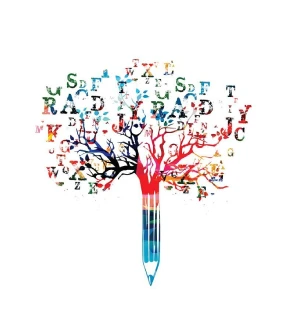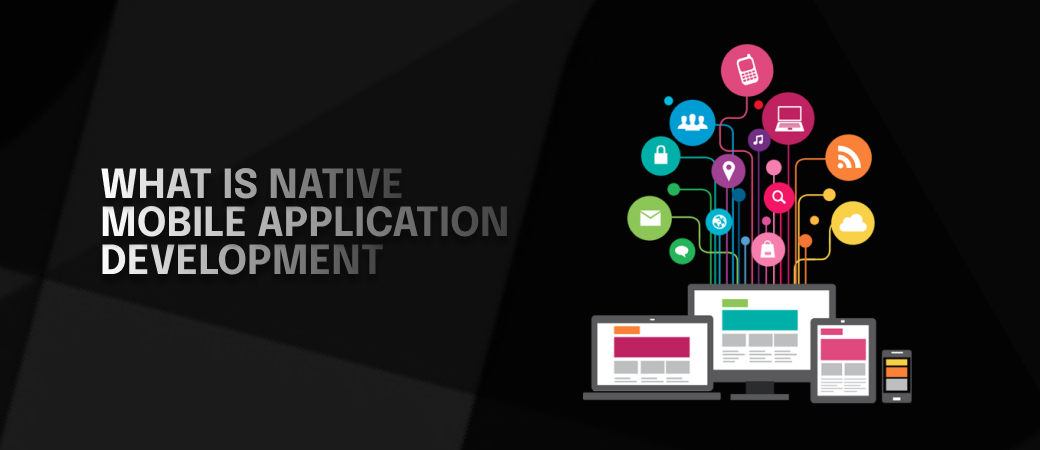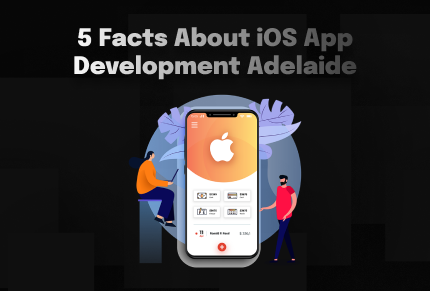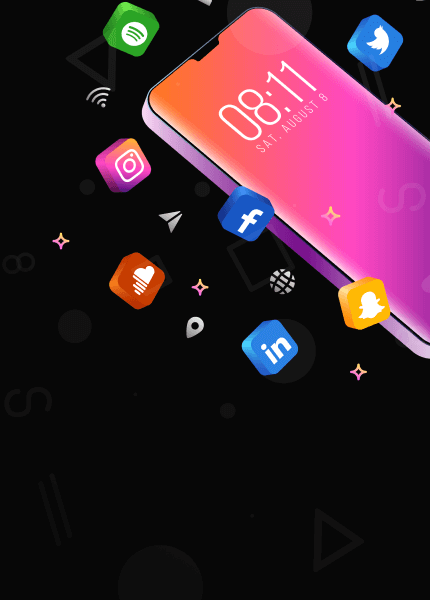Native mobile application development involves building a mobile application dedicated to a specified platform like Android or iOS. The app will be developed for a particular mobile operating system and launched on dedicated app stores like Google Play and the App Store.
Native mobile apps usually provide more user engagement than hybrid apps since they are built for the operating system. They also perform better than web-based apps and give access to different hardware on the phone, which might not be possible with a mobile browser.
These mobile apps don’t operate on the browser but must be downloaded on platform-specific stores. Thus, it is more complicated for Android and iOS app developers to make a native app than for them to make a mobile website.
It’s important to note that particular programming languages and tools are designed for the different platforms that a native app can be built on. Let’s take a closer look at what native mobile app development involves.
Android and iOS Native Mobile App Development
Most of the time, professional mobile application development services will use Java, C++, and Kotlin to create native Android apps. Other tools provided by Google, like the Android Software Development Kit, Firebase, command-line tools, and the Android Jetpack. Many third-party tools exist for building Android native apps.
On the other hand, the iOS system is closed source and only designed for Apple. This means that developers will need a Mac computer and languages like Swift or Objective-C for building. Apple also makes different resources for developing native iOS apps, like XCode, iOS SDK, TestFlight, and Swift Playgrounds.
Examples of Popular Native Apps
Native mobile application have access to different devices' different services like push notifications, microphones, and sensors. Famous examples include Twitter, WhatsApp, Pokémon Go, Waze, and Spotify. These apps can use the tools on your mobile device and are downloadable in the App Store or Google Play Store.
Benefits of Native Mobile Apps
There is a wide range of benefits that companies and users can get from native mobile apps.
Top-Notch Performance
As long as you hire a reliable mobile application development service to take care of building your native mobile applications, you can enjoy top performance. This is because they are optimized for a specific platform. Native apps are quick, responsive, and efficient. They use the device's processing power since they are stored on the gadget.
More Intuitive and Interactive
Native mobile Applications will provide more responsive input and output, especially since they are built for the operating system environment of the device. It acts as an integral part of the device, providing a better user experience. Users can enjoy interacting with these apps through different gestures, as the app provides a natural flow.
Mostly Bug-Free
With native mobile application development, there's less chance for a bug to develop than with hybrid technologies. When building a hybrid app, the bridge can make development slower, leading to bugs coming up in the app. But, this isn't the case with native apps, especially since they have access to SDKs with the latest features.
Easily Scalable
Developing native mobile applications comes with a lot of flexibility and scalability, especially since there are a lot of resources and tools available to developers. This makes it easier for companies to increase the reach of their app as their business grows.
Higher Security
You can guarantee that your native mobile app is secure, especially with the development method. The different technologies available will give your users constant security, ensuring that their data is safe from prying eyes. Various technologies are involved in building native mobile applications.
Leverages Device Capabilities
Native mobile app developers have complete access to the features and capabilities of a device. Since they are built for the device, they have access to its hardware like GPS, microphone, and camera, making them more intuitive and quick in responding. Another benefit of using native apps is sending push notifications through them to users. There is access to APIs and tools, and as long as the user allows the app, they can fully enjoy its capabilities.
Better Support on the App Market
It's easier to increase your ranking and enjoy good support from the app market when you build a native app rather than a hybrid app. They are easier to publish and rank higher, with top-notch speed and performance.
Downsides of Native Mobile Apps to Consider
Although native mobile apps are highly efficient and recommended for businesses that want to extend their mobile reach, there are a couple of downsides that companies should consider.
It is more expensive to build native apps than to build hybrid apps. You will need to hire two teams for the iOS and the Android apps, which means that they will be more expensive. It also takes a longer time to build native apps than hybrid apps.
But, if you want to gain the benefits of native apps for your business, the price is worth it. You need to look for reliable and cost-effective app development services.
It's also important to consider that a native app usually needs regular updates and meets particular download requirements before being accepted on a mobile app.
Native vs. Cross-Platform vs. Hybrid Apps
The different types of mobile applications are native, cross-platform, and hybrid. They appear similar in their appearances and functions, but the underlying technology is different. Native mobile applications are built to run on a particular technology, either iOS or Android.
Then, hybrid mobile apps combine the features of a native and web app. They are usually built with languages like JavaScript, CSS, and HTML. Developers will create backend codes based on Android or iOS and upload them to the store. It takes less time and money, and you can launch the app to all platforms at once.
Finally, there is cross-platform development, which has the same codebase as hybrid apps. It involves making one app that can operate on different operating systems rather than making different app versions for diverse platforms.
Conclusion
If you want to build a high-performance app with impressive long-term results, your business can benefit from a native mobile app. It's recommended to hire these services from a top-notch Android and iOS app development company.














